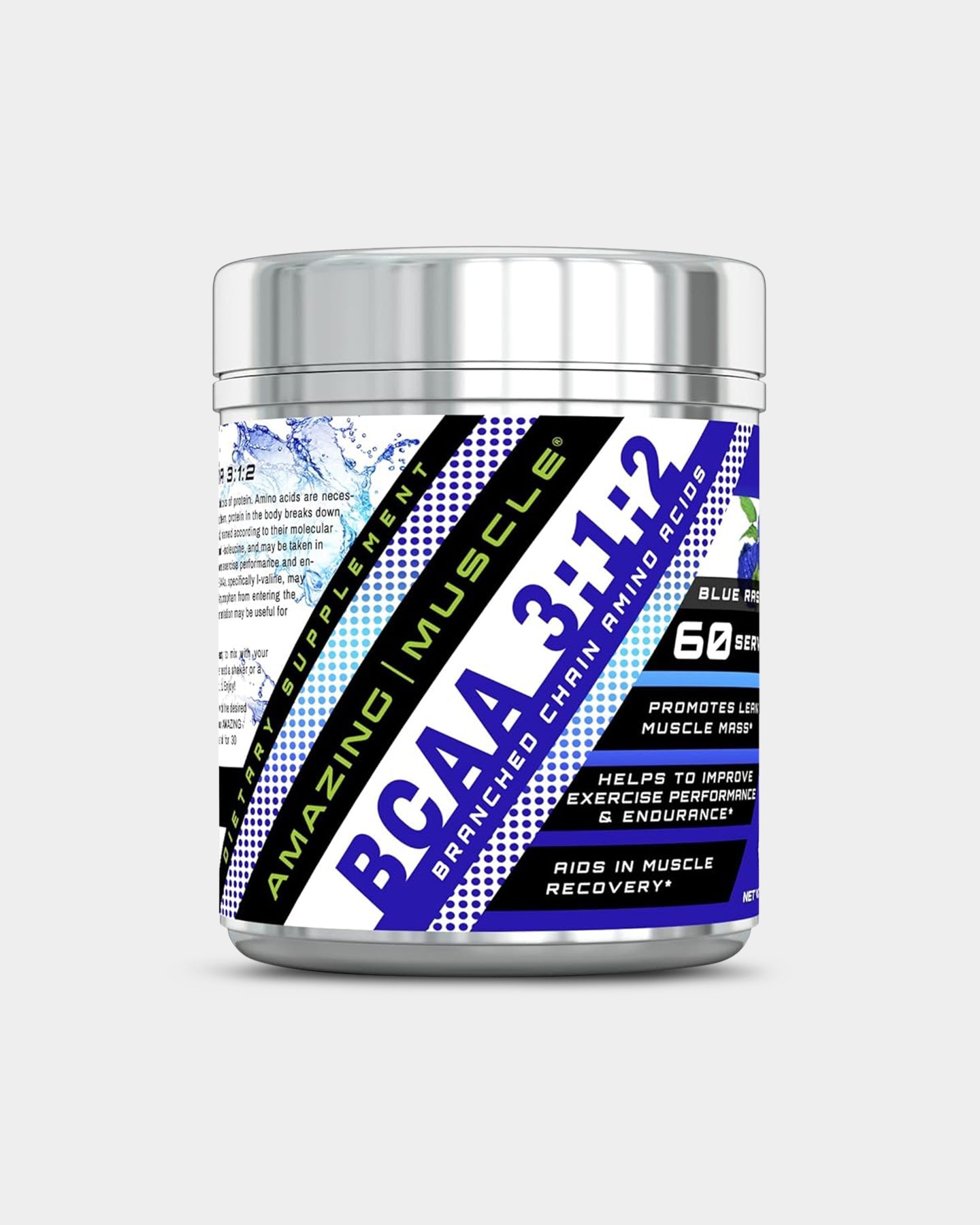Smart Ways to Use BCAA for Effective Muscle Recovery in 2025
In 2025, fitness enthusiasts and athletes are increasingly turning to Branched-Chain Amino Acids (BCAA) as an essential part of their muscle recovery regimen. Understanding BCAA and its significance in sport nutrition is vital for anyone looking to enhance their performance and achieve their fitness goals. BCAA, comprising leucine, isoleucine, and valine, plays a pivotal role in muscle repair, energy production, and overall performance enhancement.
In this article, we’ll explore smart strategies to use BCAA effectively for muscle recovery, highlighting techniques, recipes, and scientific insights to maximize your fitness outcomes. Whether you’re involved in bodybuilding, endurance training, or general fitness, incorporating BCAA correctly can lead to improved muscle mass, reduced fatigue, and enhanced recovery time.
We’ll also discuss creative ways to consume BCAA, from smoothies to other dietary supplements, providing you with practical examples that fit perfectly into your nutrition plan. Stay tuned as we examine the benefits of BCAA and how you can use it as a powerful tool in your recovery strategy.

Essential Guidelines for BCAA Supplementation
Understanding BCAA and Its Role
Branched-Chain Amino Acids (BCAAs) are essential amino acids that the body cannot produce on its own, making it crucial to include them in your diet. These amino acids are particularly beneficial for muscle recovery and growth, as they help decrease protein breakdown and stimulate muscle protein synthesis. By understanding how BCAAs function, athletes can leverage their benefits to enhance recovery times and improve overall performance.
Optimal Timing for BCAA Intake
To reap the benefits of BCAA, timing is critical. Consuming BCAA before, during, or after your workouts can lessen muscle soreness and expedite recovery. Pre-workout BCAA supplementation helps fuel muscles with the necessary nutrients, while post-workout intake supports muscle repair after intense training sessions. Strategizing your BCAA consumption can significantly improve your workout efficiency and recovery speed.
Daily BCAA Dosage Recommendations
While the ideal BCAA dosage varies per individual, aiming for a daily intake between 5-20 grams is optimal for most athletes. It is essential to assess your fitness level, training intensity, and personal goals when determining your specific dosage. Consulting a sport nutritionist can help tailor a BCAA plan that aligns with your fitness objectives.
Incorporating BCAA into Your Diet
Integrating BCAA into your daily meals can be both practical and delicious. From smoothie recipes to meal replacements, the options are abundant. For instance, adding BCAA powder to your favorite post-workout smoothie or oats can boost recovery while providing additional protein. Consider experimenting with various flavors for an enjoyable nutrition experience.
Potential Risks and Common Misconceptions
While BCAA supplementation is generally safe, excessive intake can lead to gastrointestinal distress or imbalances in amino acid levels. Misconceptions surrounding BCAA may also discourage individuals from exploring its benefits. Ensuring accurate information is crucial for optimizing its use in supplementing your fitness routine effectively.
With a foundational understanding of BCAA established, let’s delve deeper into creative methods for using BCAA effectively in your recovery strategy.
Creative Recipes Using BCAA
Top Smoothie Recipes for Muscle Recovery
Smoothies are a fantastic way to integrate BCAA into your post-workout routine. Combine protein powder, your favorite fruits, greens, and a scoop of BCAA for a nutritious boost. A classic berry and banana smoothie enriched with BCAAs provides both hydration and essential nutrients. This approach not only powers a complete recovery but also aligns with a personalized fitness regimen.
BCAA in Meal Prepping
Meal prepping has grown in popularity among fitness enthusiasts. Incorporating BCAA into your meal prep can simplify your nutrition, ensuring proper intake throughout the week. Consider preparing high-protein meals, such as chicken or tofu stir-fry, and mixing in BCAA supplements during the cooking process. This guarantees that each meal is optimized for recovery.
Innovative Snack Ideas for BCAA Consumption
Munching on post-workout snacks doesn’t have to be boring. Create protein bars or energy bites infused with BCAAs, oats, and nut butter. This combination enhances muscle recovery while providing a satiating treat. By consciously including BCAAs in snacks, you can ensure consistent nutrient delivery throughout the day.
BCAA-Enhanced Puddings and Desserts
For those with a sweet tooth, BCAA can easily be incorporated into desserts. Using BCAA powder in recipes for healthy puddings or yogurt can transform your dessert into a protein-packed recovery option. Exploring various recipes allows for a creative embrace of post-workout nutrition while satisfying cravings.
Utilizing BCAA During Hydration
Hydration plays a vital role in muscle recovery, and adding BCAA powder to your water can offer dual benefits. Keeping hydrated with a BCAA mixture supports muscle function while preventing fatigue. Emphasize regular hydration, particularly during intense training sessions, to maximize performance and recovery outcomes.

Understanding BCAA for Enhanced Performance
Scientific Insights into BCAA Efficacy
Extensive research supports the efficacy of BCAA in muscle repair and recovery. Studies indicate that BCAA supplementation significantly reduces muscle soreness after intensive workouts, allowing athletes to maintain training intensity. Such scientific backing reinforces the importance of incorporating BCAA as part of a holistic fitness approach.
BCAA and Weight Management
Incorporating BCAA into a weight management plan can be beneficial. Due to their role in reducing muscle loss during caloric deficits, BCAAs support the retention of lean muscle mass while promoting fat loss. A balanced fitness plan centered around BCAA can enhance your weight management goals and elevate your performance levels.
BCAA in Different Training Regimes
Different types of training require specific nutritional support. BCAA plays a vital role in both endurance and strength training. For endurance athletes, BCAA may help decrease the onset of fatigue, while for bodybuilders, it aids muscle repair and prevents muscle breakdown. Understanding these nuances enables athletes to tailor their BCAA intake based on their training focus.
Current Trends in BCAA Supplementation
Staying aware of current trends in BCAA supplementation offers insights into innovative methods for efficient muscle recovery. Personalized BCAA blends and natural sources such as plant-based proteins are gaining traction among the fitness community. Keeping informed about these developments enhances personal fitness strategies and nutritional effectiveness.
The Role of BCAAs in Performance Testing
As part of performance testing and monitoring, tracking BCAA levels can provide valuable feedback on recovery efficacy. Sports nutritionists recommend utilizing BCAA testing methods to gauge needs and adapt supplementation strategies accordingly. This approach supports thoughtful consumption and encourages sustainable fitness practices.
Commonly Asked Questions About BCAAs
What Are the Main Benefits of BCAA Supplementation?
BCAA supplementation aids in muscle recovery, enhances workout performance, and minimizes muscle soreness, resulting in improved workout efficiency. Additionally, BCAAs can promote muscle growth and assist in weight management by preserving lean mass during caloric deficits.
How Should I Include BCAA in My Meals?
Incorporate BCAA by mixing it into smoothies, meal preps, or snacks throughout the day. Aim to consume it before or after workouts for optimal recovery benefits. Explore various recipes to find enjoyable methods of inclusion that align with your dietary preferences.
Are There Any Side Effects of Excessive BCAA Intake?
While BCAA is generally safe when used as directed, excessive intake can lead to gastrointestinal upset or imbalanced amino acid levels. It’s crucial to monitor your intake and consult with a sports nutritionist for tailored recommendations.
Can I Obtain BCAAs from Whole Foods?
Yes, whole food sources such as meat, dairy, eggs, and certain plant-based proteins provide BCAAs naturally. For those preferring to optimize their intake through supplementation, these food sources can complement BCAA needs effectively.
How Do BCAAs Support My Fitness Journey?
BCAAs facilitate better recovery, allowing you to train more effectively and reach your fitness goals quicker. By integrating BCAAs into your nutritional plan, you enhance muscle repair and gain a competitive edge in your fitness journey.
Utilizing BCAA thoughtfully within your nutrition regimen can empower your fitness and elevate your muscle recovery strategies, leading to better performance and results.
